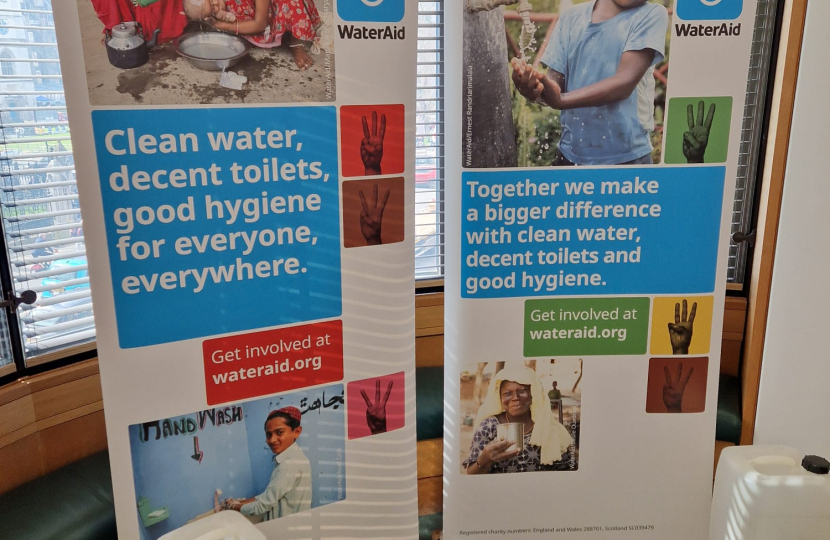
Thank you to those constituents who have contacted me about water, sanitation and hygiene (WASH) in developing countries. I was pleased one of my team was able to attend the Water Aid 24 event back in March on my behalf.
Safe water and adequate sanitation are basic human needs: it is a regrettable fact that for so many on our planet these needs remain unmet, particularly in developing and conflict-affected states, so I appreciate the concerns raised and hope that you will take reassurance from the fact that improving access to WASH services and meeting UN Sustainable Development Goal (SDG) 6 have long been global health priorities for the Foreign, Commonwealth and Development Office. I was proud that, between 2015 and 2020, the UK aimed to provide 60 million people with improved water and sanitation and exceeded this target in August 2020, helping 62.6 million people access clean water and sanitation, of which 26.2 million were based in fragile states.
In 2023, the UK attended the first UN High-Level Conference on Water held in 40 years where the previous Conservative Government demonstrated global leadership in accelerating progress towards SDG 6 by announcing a five-year, £18.5 million WASH Systems for Health programme. This programme is supporting governments in low and lower-middle income countries to develop stronger systems crucial to the delivery of sustainable and climate-resilient WASH services - a vital part of reducing the global infectious disease burden.
Further steps taken to improve WASH globally include the Hygiene and Behaviour Change Coalition. Also introduced by the previous Government, this programme trained 460,000 health workers on hygiene improvements, and supported 14,800 facilities with WASH supplies. Additionally, the UK helps rally international attention in antimicrobial resistance through the global taskforce on WASH in Healthcare Facilities, working with World Health Organization, UNICEF and other partners.
Around the world, we know women and girls are disproportionately impacted by inadequate WASH access. One of the most direct impacts is the burden of collecting water, which women and girls spend 200 million hours doing each day globally. These journeys can also place them at increased risk of gender-based violence, as does a lack of private and secure sanitation. Rest assured, however, that making women and girls central to its approach to international development is a priority for the UK. Indeed, gender considerations have been incorporated into the design of the UK's WASH programmes. In addition, the FCDO's Ending Preventable Deaths Action Paper sets out how it will address the barriers to protecting the lives of mothers, babies and children – in which improving WASH worldwide plays a central role.
While I am proud of the progress the UK has made thus far in improving access to WASH services for those who most need it, there is no denying that further progress needs to be made. I hope that the new Government will build on the work of the previous administration and continue to prioritise this SDG.




